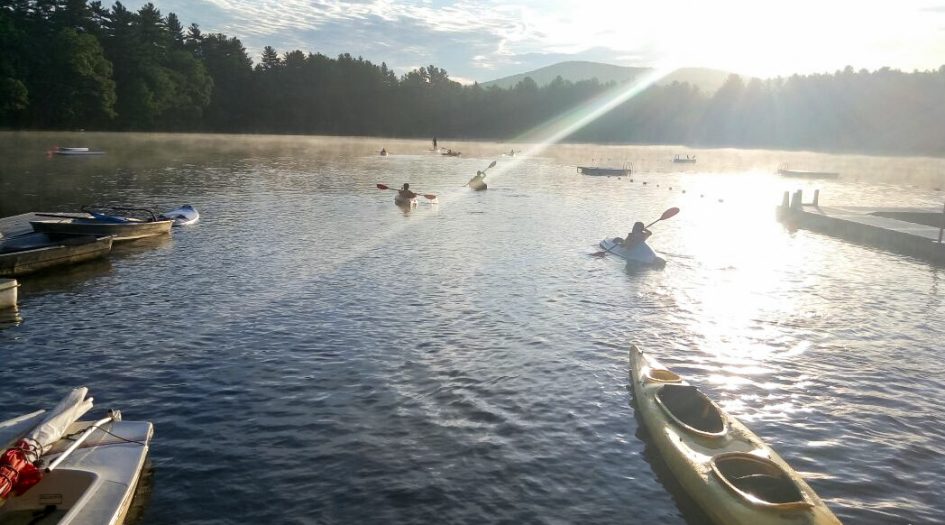Ramah New England’s Approach to Israel Education

A number of recent news articles have reported on how Israel education is handled at Camp Ramah in New England and our Ramah Day Camp of Greater Washington, DC. I wanted to share our approach with you directly.
Camp Ramah in New England is a Zionist camp. We support the existence of the State of Israel and love for the people and the land of Israel. We do not teach anti-Israel positions. Being pro-Israel does not mean that everyone has to agree with the positions of any particular Israeli political party or the Israeli government. There can and should be healthy debate across a wide spectrum of beliefs. It is also critical, and I think needs to be stressed over and over again, that these discussions need to be conducted in a respectful manner.
I think it is always important to remember that we are a children’s summer camp with many educational goals that we present in age and developmentally appropriate ways. Additionally, education at camp is provided in two critically different formats. The first is through the structure of our daily schedule (Limud (learning) program taught by our Limud staff) or edah (age division) activities or on Yom M’yuchad (special days planned by our rashei edot/division heads or madrichim/counselors).
The second approach is very organic. There are thousands of conversations that chanichim (campers) have with tzevet (staff) – especially the madrichim that live in their tzrifim (bunks). It is important to remember that we have approximately fifty Israeli staff each year and that virtually every tzrif has at least one Israeli staff member. This is what makes camp such a powerful experience. These young American and Israeli tzevet build connections and relationships to our chanichim and discuss many issues with them. We, the senior staff at camp, train these extraordinary role models to help guide them on how to approach a wide variety of subjects, including when chanichim ask about Israel, relationships, God and a thousand other topics. I work closely with our rashei edot and yoetzot (parent liaisons) to keep a pulse of what is going on in the tzrifim. We invest an incredible amount of time building relationships and trust with our tzevet so that they come to us when they encounter difficult questions and situations.
I am fiercely proud of our tzevet and the job they do. By and large their judgement is sound. We have a tremendous track record of success. Of course tzevet sometimes make mistakes and don’t always say everything exactly the way we wish. That is a very small price to pay for the tremendously positive influence they have. As parents, we want to put our children in the best environment possible. We cannot control everything our children see or hear. However, at Ramah, I believe you have chosen an incredible environment where the role modeling is very strong.
With regard to Israel education, it is also important to realize that the Israeli/Palestinian conflict is just one part of what we discuss. By and large, this topic is mostly discussed in our two oldest edot (in Palmer) and in staff programming. We feel these programs and discussions are a very important part of what we do at camp.
It is true that campers will be exposed to viewpoints that they or their parents might not agree with. Chances are that they will hear rational counterarguments to the positions they support as well as beliefs they do not support. On occasion a camper might hear a view that we at Ramah view as outside what we feel to be acceptable given our guiding philosophy. I think that when a radical opinion is expressed, there are competent voices expressing rational reasons why they disagree, and our campers learn a valuable lesson about how to respond to different criticisms that might be unfair or wrong. I think that it is a mistake to provide simplistic views of any topic to our older edot and staff. Those views will leave them ill-equipped to operate in the broader world. Our college-aged staff face a lot of difficult situations on college campuses, and preparing them is part of our mission.
Israel is an emotional topic for so many of us. We have to hold the values of supporting Israel and recognize that this support means different things to different people, all while maintaining the value that we are one people. It is a complex topic and we feel confident that by building strong relationships with each other and a strong kehila (community), we will effectively learn and grow together. We are looking forward to a great kayitz.